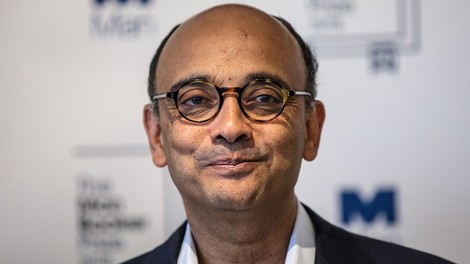Your podcast discovery platform
Curious minds select the most fascinating podcasts from around the world. Discover hand-piqd audio recommendations on your favorite topics.

piqer for: Globalization and politics Global finds Climate and Environment
Javier is a Berlin-based multimedia journalist. He completed a MA in International Journalism at City, University of London and is focused on humanitarian and conflict issues.
With experience in several countries, he's covered the refugee crisis, Turkey's coup attempt and the Kurdish conflict.
Among others, his work has been published at ABC News, Al Jazeera, Channel NewsAsia, RBB, IRIN News, El Confidencial, Público or Diario ABC.
Political Identities In A Globalised World
In one of the world's most diverse countries, a far right politician has just been voted as new president. How is that possible?
But the case of Brazil and Jair Bolsanaro is only the last episode.
Trump, Erdogan, Duterte, Putin, Orban, Salvini. The rise of ultranationalism is taking place everywhere. What is driving these forces is the need of belonging, of having an identity, in the context of a globalised world in which inequality keeps growing.
Kwame Anthony Appiah, a renowned philosopher, believes there are five types of identity: creed, country, color, class and culture. In this hard talk with Stephen Sackur, he reflects on what we are, what defines our identity and on the social and political implications of those labels.
He's clear about it: most of the things we know today about identity are artificial concepts created not so long ago. Including race. And when you reduce the argument to identity generalisations, then you are most probably getting it wrong.
Identity can be a useful political tool, of course. Especially when it is used to defend minorities whose rights have been historically violated.
But globalisation has also left an identity vacuum in the psyche of the economically-hit middle-class (read white middle-class in western countries), who seem to only find comfort in ultranationalist or fundamentalist ideas.
Appiah's deep reflections help debunking those dangerous dogmas, but as long as there's no critic against today's wild neoliberalism, the casino-like economic system widening the gap between poor and rich and sinking the hope in a better future for coming generations – the real reason pushing people to extremes –, as long as thinkers and academics don't offer economic but also cultural and philosophical solutions to this seemingly unstoppable phenomenon, large parts of society will continue seeing defenders of cosmopolitanism and diversity – whom Appiah perfectly represents – as the elite that is making their lives more miserable.
Stay up to date – with a newsletter from your channel on Globalization and politics.
